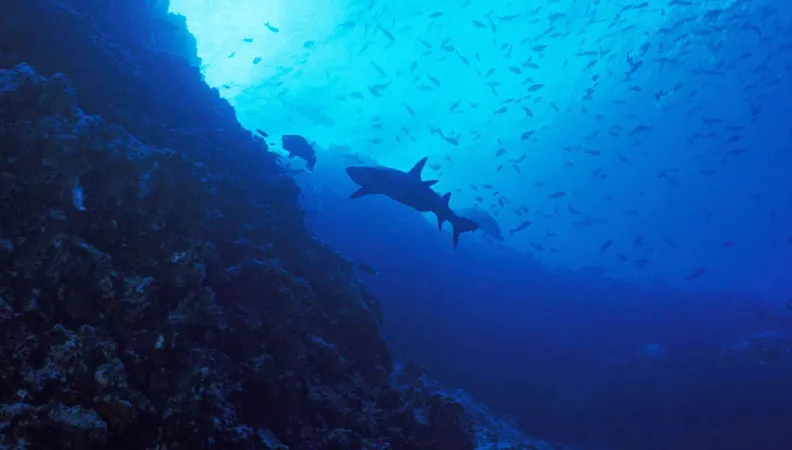Share the page
Protecting Nature and Biodiversity: "Living Things Deserve Rights"
Published on

Nature has long been regarded more as an object for use and exploitation than as a living entity worthy of protection. Advocates say we can best protect biodiversity by granting nature rights. Unlike human rights however, they have yet to be enshrined in international law. Speaking at the "Let's Act for the Living" conference in Arles this week, Marine Calmet, co-author of “The Rights of Nature” (published by AFD), tells us how a change in our laws – and the concepts that underlie them – could help us protect the natural world.
What do we mean exactly by protecting nature and living things by law?
Marine Calmet: The concept of the rights of nature covers two vital dimensions: a tool to curtail harmful activities, preventing and punishing violations, and a programming tool that sets out a framework that respects ecosystems and living things. The law at the moment, with western inspiration, is marked by a utilitarian view where humans dominate objectified nature. This view divides the world in two: people and things, thereby justifying the appropriation of living things, and damage to the world's climate, ecology and environment. Other concepts of the law are beginning to emerge, however.
The right to live in “a clean, healthy and sustainable environment” is currently recognized as a human right for all. What is the added value of the legal approach you are advocating?
The rights of nature movement aims to have principles written up prohibiting actions that are incompatible with the boundaries of living things, and which could contribute to ecocide, such as the mining sector in Latin America.
This means those violating such principles can be prosecuted, such as resulted in the historic cancellation of mining permits to protect Ecuador’s Los Cedros natural reserve. Such rights force States to cooperate with local and indigenous people, and can result in banning activities that harm their well-being. This dream, however, is one that is yet to come true in France.
Given that many of our consumer-based societies depend on the exploitation of the natural world, can we realistically hope to extend rights-based legal protections to all living things?
The anthropocentric approach divides the world into categories of use. Conversely, the right of nature considers that any biological subject deserves interdependent rights: animals, plants, ecosystems and people. These approaches are gaining ground in national and local laws, like in Brazil, Peru and Ecuador, the pioneering country that has enshrined rights of nature in its constitution.
In Spain, Mar Menor, (the largest salt water lagoon in Europe), was given a legal identity in 2022, having been affected by pollution generated by intensive farming. This enables it to exercise its rights and obtain compensation, and for it to be represented by a group of guardians made up of citizens and scientists.
How has the movement for a legal system protecting living things developed? How can cultures of origin and indigenous cultures inspire such developments?
In Colombia, the Constitutional Court declared the Atrato river "subject to rights" to safeguard its protection, in the name of human rights to live in a healthy environment. The rights of the communities and the river were therefore safeguarded, underlining the connection between human rights and the rights of nature.
In Latin America, the Andean traditions and Quechua or Amazonian cosmovisions (philosophies) inspired these rights. In Ecuador, the living forest concept emerged thanks to the Kichwas. In New Zealand, the Maori obtained living entity status for the Whanganui, meaning its interests could be defended in court. In Africa, the local people are fighting to preserve sacred sites, like Lake Albert in Uganda, by creating a status and representation for these places.
Some political forces that oppose rights of nature and environmental policies are regaining ground in several major economies, how can the alternative you are suggesting counter this trend?
In the West, where the connection with indigenous cultures is not as close, other kinds of guardians of nature are emerging. Actions taken for water, rivers, and forests against ecocide projects are increasing. But they are often punished by law that does not suit the current environmental challenges. Defenders of nature, like Paul Watson of Sea Shepherd for example, are being pursued for prosecution for interfering with Japan’s whale hunt.
Giving nature rights allows us to anticipate and prevent threats to ecosystems and their vital elements. And they tend to broaden perspectives, so that [we can work to build] governance that suits planetary boundaries, and human beings living in harmony with the environment.
